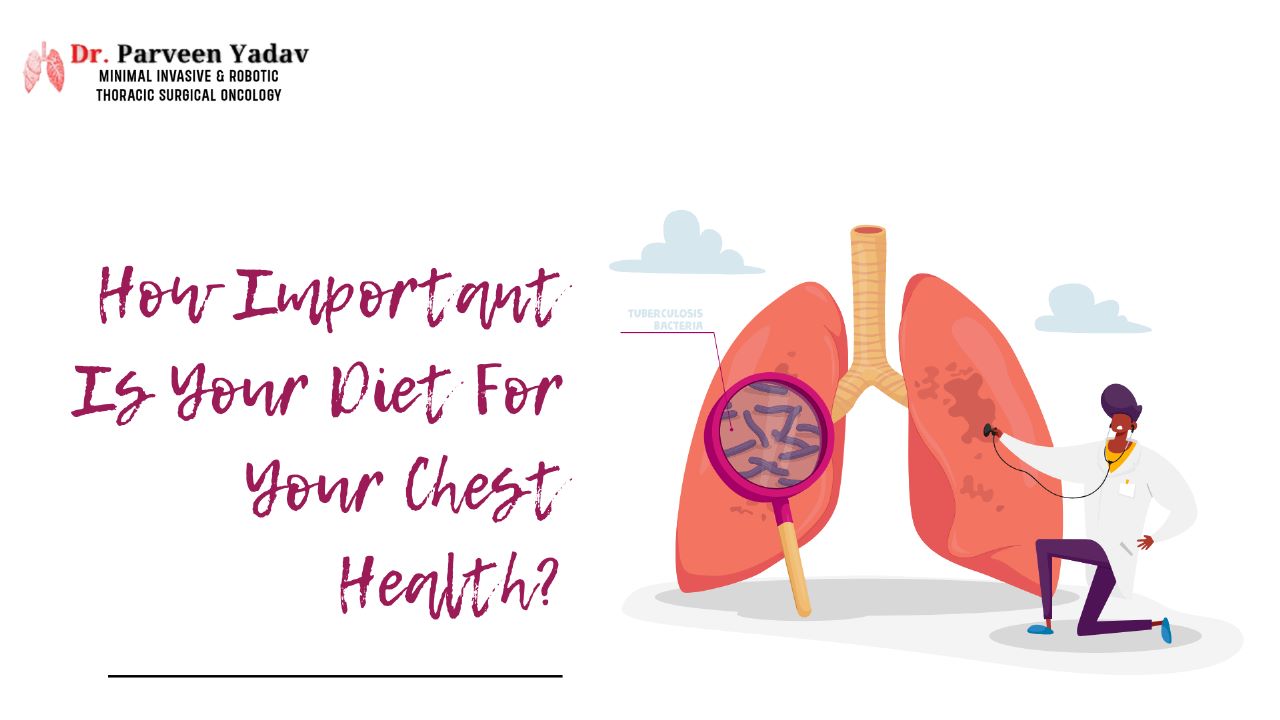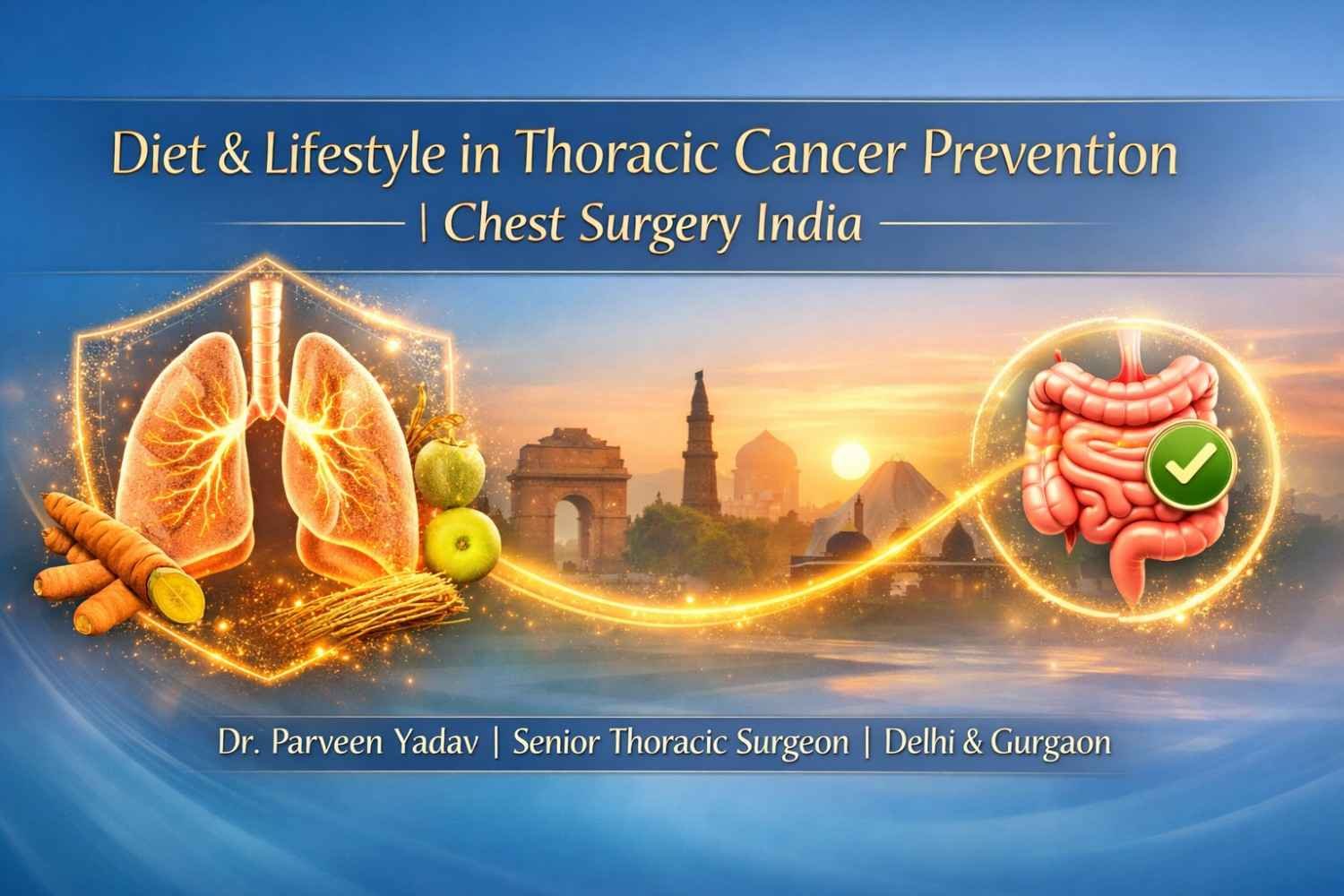

It is safe to say that your chest contains the organs that are keeping you alive. From the tracheal region to your lungs and the heart, your chest is arguably the most sensitive and important region of your body. It is also a region that is prone to several pollutants and hazardous elements.
Some of the most common causes of chest-related cancers and other diseases are related to unhealthy lifestyles. From smoking and drinking to a lack of a healthy diet, your lungs, windpipe, and heart are prone to several diseases. It is always advisable to maintain a healthy lifestyle and take even smaller symptoms seriously.
The food you eat has a significant impact on your chest’s health. While you can control exposure to certain pollutants and chemicals, other gases and pollutants are not under your control. A healthy diet allows you to cleanse your body and maintain sound chest health. Along with quitting hazardous habits like smoking and alcohol consumption, make sure you eat healthy for a healthy chest.
Here are some of the most important foods you should include in your diet to keep your chest healthy:
Not all fats are harmful to your body. It is advisable to consume monosaturated and polyunsaturated fats to keep your chest healthy. These fats do not contain cholesterol which leads to health complications related to your chest. They help you reduce inflammation and blood pressure and have a positive impact on your overall health.
Foods rich in healthy fats like olive oil, nuts, eggs, avocado, etc., help you keep your chest healthy.
Foods rich in protein are also important in keeping your chest healthy. They keep your body strong and help it produce immune system cells. Make sure you consume a diet rich in protein at least twice a day to ensure healthy chest organs.
Foods that give you enough protein to keep your chest healthy include eggs, beans, lean meats, etc.
Complex carbohydrates help you regulate blood sugar levels and keep the organs in your chest healthy. High in fiber, these foods prevent issues like obesity and hypertension caused by simple carbs contained in foods like sugar, candies, etc.
Foods rich in complex carbohydrates that help you keep your chest healthy include pasta, fresh produce, whole-grain bread, etc.
If you are willing to live a long and healthy life while keeping your chest protected, make sure you add fresh produce to your diet. Fresh vegetables and fruits are rich in minerals, vitamins, and fiber that keep your body in shape.
Prefer eating fresh produce like grapes, pineapples, and berries over apricots, peaches, and apples to ensure sound lung health. When it comes to vegetables, it is healthy to eat non-starchy produce such as peas, broccoli, and tomatoes.
Consuming foods rich in potassium help you reduce unwanted water retention, control your blood pressure, and improve digestion. They help you keep your chest healthy and stay away from unwanted health complications. While banana is the most common and accessible source of potassium, it is advisable to eat beets, tomatoes, leafy green vegetables, and other potassium-rich foods to keep your chest healthy.
An apple a day certainly keeps a doctor away when it comes to ensuring sound chest health! Apples contain the antioxidant quercetin, which reduces lung decline and lung damage caused by smoking. While quitting smoking is the best way to ensure healthy lungs, apples have a significant contribution toward maintaining good chest health as well.
People eating at least five apples in a week are at a fairly lower risk of developing COPD (chronic obstructive pulmonary disease) and other chest- related diseases.
Beetroot, as well as beet greens, help you keep your chest organs safe and healthy. They improve your lung functions, control your blood pressure, and optimize the intake of oxygen within your body. Doctors often recommend beets to patients struggling to breathe while tackling serious diseases.
Moreover, beets are full of healthy nutrients that help you keep your chest organs secure, such as potassium and magnesium.
Not many people know that pumpkins are very healthy for the lungs. They are rich in carotenoids which are responsible for improving the lungs’ function. Carotenoids also have anti-inflammatory properties and are rich in antioxidants, further promoting healthy lungs.
Tomatoes are some of the most accessible fruits/vegetables that help you improve your chest health. Whether consumed raw, in a salad, or in the form of juice, tomatoes are linked with reduced lung decline and help patients tackle airway inflammation.
After discussing the nutrients and food items that are healthy for your chest and the organs therein, let us have a brief look at the foods you should keep away from your diet:
Salty Foods – Make sure you steer away from consuming salty foods in excess, as sodium leads to unwanted fluid retention in chest organs. This leads to shortness of breath and several lung diseases.
Dairy – While they are healthy if consumed in moderation, relying on a lot of dairy products for your diet is not healthy for your chest health. The breakdown of milk in your body (casomorphin) leads to an increase in phlegm and mucus in your body.
Soda – Drinking soda is always an unhealthy option for people with a history of lung diseases. While the carbon dioxide in these aerated drinks leads to bloating, high sugar content often causes inflammation within vital chest organs.
Deep-fried Foods – Consuming deep-fried foods increases the intake of unhealthy fats that cause unhealthy discomfort in the chest by pushing the diaphragm.
What you eat has a significant impact on your body and chest health. If you want to stay away from lung diseases, tracheal infections, cancers, and several other chest-related diseases, make sure you monitor your diet and eat healthily.

18+ Yrs Exp | 5,700+ Thoracic & Robotic Cancer Surgeries
Dr. Parveen Yadav is a Director and Senior Consultant in Thoracic and Surgical Oncology, specializing in minimally invasive and robotic lung and esophageal surgeries, with advanced training from AIIMS and Tata Memorial Hospital.
View Full Profile Pain After Thoracic Surgery: Tips for Smooth Recovery
Pain After Thoracic Surgery: Tips for Smooth Recovery
 Diet & Lifestyle for Thoracic Cancer Prevention | Dr. Parveen Yadav
Diet & Lifestyle for Thoracic Cancer Prevention | Dr. Parveen Yadav
 Robotic Thoracic Surgery: How Da Vinci Technology is Revolutionizing Chest Procedures
Robotic Thoracic Surgery: How Da Vinci Technology is Revolutionizing Chest Procedures
Struggling with pain after chest surgery? Dr. Parveen Yadav shares expert recovery tips, causes of shoulder pain, PTPS signs, and what your discharge sheet won't tell you.
Discover how diet, breathing exercises & daily habits help prevent and recover from thoracic cancer. Expert insights from Dr. Parveen Yadav, Chest Surgery India
Discover how Da Vinci robotic surgery is transforming chest procedures in Gurgaon. Less pain, faster recovery & expert care by a certified thoracic surgeon
Copyright 2026 © Dr .Parveen Yadav all rights reserved.
Proudly Scaled by Public Media Solution!